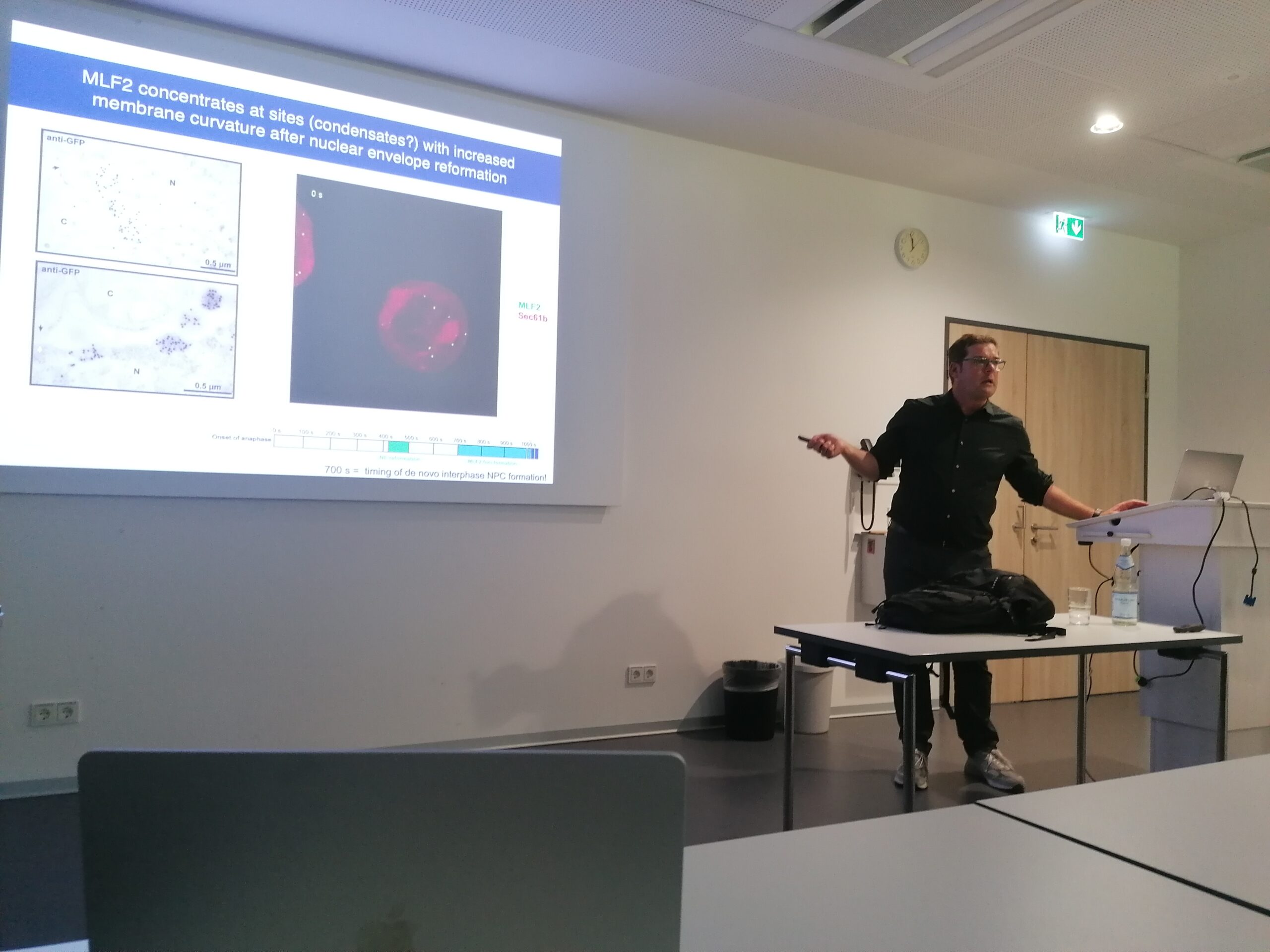On July 8th, we welcomed guest speaker Christian Schlieker, an expert in nuclear compartmentalization and the development of novel methodologies to study the interplay of membrane dynamics, liquid-liquid phase separation, and protein quality control. In his talk, titled “(Dis)connecting Aberrant Nuclear Condensates and Neurological Disorders,” Christian explained the two different processes of Nuclear Pore Complex (NPC) assembly: postmitotic NPC assembly and interphase assembly. He discussed how defects in NPC assembly or homeostasis are linked to movement disorders, including dystonia, a highly debilitating condition.
In a recent study, Christian’s lab uncovered diagnostic biomarkers that indicate aberrant nucleoporin condensates, highlighting the role of Torsin ATPases in maintaining the integrity of the nuclear envelope and proper assembly of NPCs. Torsin ATPase deficiency is also associated with nuclear envelope abnormalities, such as herniations or blebs, due to the compromised structural integrity of the nuclear envelope. The results show that these nuclear envelope blebs are dependent on POM121 (a transmembrane nucleoporin essential for interphase nuclear pore biogenesis) but independent of ubiquitin, with a reduced presence of mature NPC components like Nup358. Using high-throughput imaging-based methods, Christan’s lab developed genome-wide genetic screening techniques to identify cellular activities that regulate condensation processes. They are also identifying small molecules that counteract pathological phase transitions. Given the shared molecular characteristics of pathological condensates across various neurological disorders, these compounds may have broad therapeutic potential for treating such conditions.
It was a pleasure to hear about the topic, which is quite familiar to the network, and to learn about the promising results.


